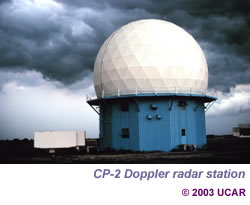By Ashley Young-
The British government has confirmed a £1.2 billion investment for a state-of-the-art supercomputer to facilitate the improvement and prediction of severe weather and climate that forecasts the latest super computing technology .
Data from the supercomputer is expected to be used to inform government policy as part of leading the global fight against climate change, and to meet net zero emission targets. The technological advancement is expected to make weather forecasts and the impacts of climate change faster and more accurate than ever before.
Data from this new supercomputer is poised to be the world’s most advanced that will be dedicated to weather and climate . It is believed to have the capability of accurately predicting storms, selecting the most suitable locations for flood defences and predict changes to the global climate. The Department of Business and Energy are liaising with a consortium of Universities, including Bath, Bristol, Cambridge, Exeter, Lancaster, Leeds, Loughborough, Sheffield, Southampton, Surrey, Sussex, Warwick and York, Queen Mary University of London, King’s College London, Imperial College London, UCL, Newcastle University, The Alan Turing Institute, Hartree
MET OFFICE
The new supercomputer, to be managed by the Met Office, will also be used to help ensure communities can be better prepared for weather disruption.
The technology is expected to be able to predict potential disruption; and
Business and Energy Secretary and COP26 President Alok Sharma said:
”Over the last 30 years, new technologies have meant more accurate weather forecasting, with storms being predicted up to five days in advance.
Come rain or shine, our significant investment for a new supercomputer will further speed up weather predictions, helping people be more prepared for weather disruption from planning travel journeys to deploying flood defences.
The new supercomputer will also strengthen the UK’s supercomputing and data technology capabilities, driving forward innovation and growing world-class skills across supercomputing, data science, machine learning and artificial intelligence.
Professor Penny Endersby, Met Office Chief Executive said:
”This investment will ultimately provide earlier more accurate warning of severe weather, the information needed to build a more resilient world in a changing climate and help support the transition to a low carbon economy across the UK.
It will help the UK to continue to lead the field in weather and climate science and services, working collaboratively to ensure that the benefits of our work help government, the public and industry make better decisions to stay safe and thrive.
Chair of the Science Review Group Professor Ted Shepherd said:
The agreement to upgrade the Met Office high performance computer is welcome news. The improved processing power will deliver a step-change in weather forecasting and climate modelling capability for the UK, such as the further development of the Earth Systems Model, which involves collaboration with the many UKRI-NERC funded research centres.
Improved seasonal forecasts and longer-term climate projections are expected to equip society with a greater ability to proactively protect itself against the adverse impacts of climate change.
The Met Office is at the forefront of supercomputing, using its current technology to drive advances in environmental forecasting. As a result, detailed weather predictions for the UK now take place every hour instead of every three hours, providing crucial and timely updates when extreme weather is approaching.
ADVANCE
Major storms Ciara and Dennis, and the ‘Beast from the East’ in 2018, were forecast five days in advance, enabling local councils and emergency services to prepare and instigate resilience plans. Similarly, the Environment Agency has used the Met Office’s latest UK climate projections set out potential future flooding scenarios and how funding can be best allocated.
The government also announced a £30 million investment for advanced super computing services,to provide researchers with access to the latest technology and expert software engineers. It will also help them speed up scientific breakthroughs like developing ‘food fingerprinting’ to detect chemical contaminants in food and improving drug design.
HIGH PERFORMANCE COMPUTING
The funding will support seven High Performance Computing (HPC) services run by universities from across the UK, including Queen’s University Belfast, the University of Edinburgh, and Durham University. The services will provide researchers with invaluable access to powerful systems to support ground-breaking work in areas from Artificial Intelligence, energy storage and supply, and therapeutic drug design, as well as boosting the skills of UK scientists.
UK Government Minister Scotland Douglas Ross said:
”The UK Government £30 million investment in Edinburgh’s supercomputers helps keep our capital at the forefront of cutting edge technology.
The University of Edinburgh facility will benefit scientists from across the UK as they are given the opportunity to use this new technology. This additional funding builds on the work of the Edinburgh and South East Scotland City Region Deal which is creating world-leading hubs for AI research.
The UK Government is committed to combating the impact of climate change on top of creating thousands of high-earning jobs and ensuring businesses and public services in the UK are the first to benefit from the latest innovations.




